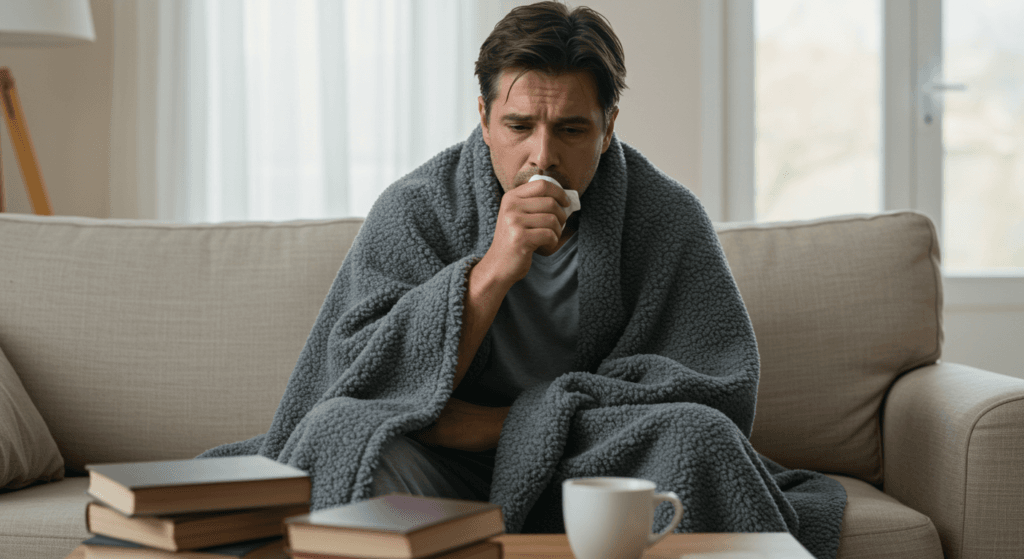Hormonal Balance: The Complete Guide to a Healthier Life

Finding hormonal balance is key to feeling your best physically, mentally, and emotionally. Hormones regulate almost every function in the body, from metabolism and sleep to mood and reproductive health.
When hormones are out of balance, it can significantly impact daily life. In this comprehensive guide, we’ll explore what hormonal balance is, why it matters, and how to achieve it naturally or with medical support.
Why Hormonal Balance Matters
Have you ever felt persistently tired, experienced unexplained mood swings, or struggled with stubborn weight gain? These issues might have more to do with your hormones than you realize. Hormones play a crucial role in keeping your body and mind in sync. When they’re off, everything can feel off.
In this guide, we’ll dive into the basics of hormonal balance, explore its causes, identify symptoms, and share practical solutions. Whether you’re looking for natural remedies, medical treatments, or everyday tips to support your hormonal health, we’ve got you covered.
Let’s get started!
What is Hormonal Balance?
Hormonal balance occurs when your body maintains the right levels of essential hormones to keep everything running smoothly. Key hormones like estrogen, progesterone, testosterone, cortisol, and insulin play critical roles in bodily functions. If any are out of balance, you might notice symptoms that impact your overall well-being.
Causes of Hormonal Imbalance
Hormonal imbalance can be triggered by several factors, including:
- Age and Menopause: Hormone levels naturally shift during menopause, leading to imbalances.
- Lifestyle Factors: Poor diet, high stress, and lack of sleep can disrupt hormone production.
- Health Conditions: Issues like hypothyroidism, hyperthyroidism, and polycystic ovary syndrome (PCOS) can affect hormone levels.
- Exposure to Toxins: Chemicals in food, water, and personal care products may interfere with hormonal health.
Signs and Symptoms of Hormonal Imbalance
The signs of hormonal imbalance can vary depending on an individual’s biology, age, and which hormones are affected. Here are some common symptoms to watch for:
- Irregularities in menstrual cycles, such as changes in timing or intensity.
- Hot flashes, night sweats, or sudden temperature fluctuations.
- Unexplained weight changes, particularly around the midsection.
- Persistent fatigue or trouble sleeping.
- Shifts in mood, including feelings of anxiety or sadness.
- Changes in libido, muscle mass, or body composition.
- Irritability, low energy, or difficulty concentrating.
Whether these symptoms are mild or severe, they may signal the need to assess hormone levels and overall health. Recognizing these patterns early can help guide you toward appropriate lifestyle changes or professional support.
How to Naturally Maintain Hormonal Balance
If you want to balance your hormones naturally, lifestyle changes can make a big difference. Here’s what you can do:
1. Eat a Balanced Diet
- Healthy Fats: Include sources like avocados, olive oil, and nuts, which support hormone production.
- Fiber-Rich Foods: Eat plenty of fruits, vegetables, and whole grains to help eliminate excess estrogen.
- Limit Processed Foods and Sugars: These can cause insulin spikes and disrupt hormone balance.
2. Get Regular Exercise
Exercise, especially strength training and aerobic activities, can help balance hormones like cortisol, testosterone, and insulin.
3. Prioritize Quality Sleep
Sleep deprivation disrupts hormone production, particularly cortisol and insulin. Try to get 7-9 hours of good sleep every night.
4. Manage Stress Effectively
Chronic stress increases cortisol levels, which can disrupt other hormones like testosterone, estrogen, and progesterone. Include relaxation methods such as deep breathing, meditation or yoga in your routine.
Medical Treatments for Hormonal Imbalance
If lifestyle changes aren’t enough, medical support may be necessary. Here are some of the most common ways to treat it:
1. Hormone Replacement Therapy (HRT)
Hormone replacement therapy (HRT) restores hormones to optimal levels, especially for women during menopause.
Types of HRT:
- Estrogen Therapy: Helps relieve menopause symptoms like hot flashes.
- Bioidentical Hormones: Plant-derived hormones that mimic human hormones.
- Testosterone Replacement Therapy (TRT): Used for men with low testosterone levels.
Benefits:
- Helps relieve menopause symptoms, such as hot flashes and night sweats.
- Improves sleep quality and bone density.
Risks:
- HRT may increase the risk of blood clots, stroke, and certain cancers.
2. Prescription Medications
- Thyroid Medications: Used to manage hypothyroidism and hyperthyroidism.
- Birth Control Pills: Can regulate menstrual cycles and treat PCOS symptoms.
- Metformin: Often prescribed to manage insulin resistance, especially in people with PCOS.
The Role of Supplements in Hormonal Balance
Certain supplements can help support hormonal health. Examples include:
- Vitamin D: Helps regulate calcium and maintain healthy hormone levels.
- Omega-3 Fatty Acids: Reduce inflammation and support hormonal balance.
- Magnesium: Improves sleep and reduces stress-related hormonal imbalances.
Hormonal Health and the Microbiome
Your gut health plays a surprising role in hormonal balance. A healthy gut microbiome can:
- Help regulate estrogen levels.
- Support the production of serotonin, a mood-boosting hormone.
- Reduce inflammation, which can disrupt hormones.
Technology and Hormonal Tracking
Apps and wearable devices can help you monitor your hormonal health by:
- Tracking menstrual cycles.
- Providing insights into sleep patterns and stress levels.
- Offering personalized recommendations for better hormonal balance.
Environmental Factors and Hormonal Health
Minimize exposure to hormone-disrupting chemicals by:
- Select glass or stainless steel containers rather than plastic.
- Choosing organic produce to avoid pesticides.
- Switching to natural personal care products.
FAQs
1. What are the best natural ways to balance hormones?
Eating a healthy diet, reducing stress, getting enough sleep, and exercising regularly are the best natural methods to balance hormones.
2. Can hormonal imbalance be fixed naturally?
Yes, but in some cases, medical treatment may be required to fully restore balance.
3. How long does it take to balance hormones?
Depending on the cause, it can take 3-6 months of lifestyle changes to see significant improvements.
4. Should men worry about hormonal imbalance?
Yes, especially since testosterone levels naturally decline with age, affecting energy, mood, and libido.
5. Can stress alone cause hormonal imbalance?
Yes. Chronic stress raises cortisol, which can disrupt the balance of other hormones.
6. How can I check if my hormones are balanced?
A blood test is the most accurate way to measure hormone levels.
Takeaway
Hormonal balance is essential for overall health, and it’s within our control to make meaningful changes. By adopting healthier habits, considering medical treatments when necessary, and being mindful of environmental factors, we can achieve a balanced, healthier life.
If you found this article useful, share it with a friend and subscribe to our free newsletter at the bottom of the page so I can send you more tips on hormonal balance.



